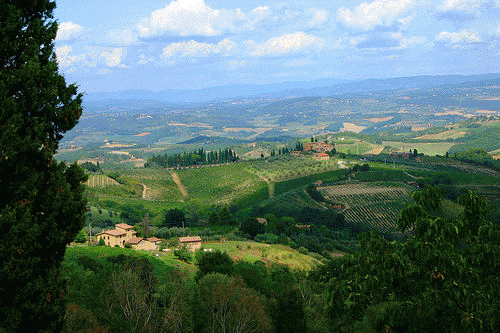For the next seven days, we will be doing Healing Camp in Italy. I plan to write a blog each day about what we are doing, so as to introduce the concept of Healing Camp and how it can work in hopes that others will try to replicate it.
Healing Camp is a social medicine experiment that was conceived in Saskatchewan in 2005. It arose from the idea that people could and should be healing for each other and that this kind of healing could and should procede seeking professional helpers. The inspiration for this came from our historical study of indigenous North American societies in which people looked within their extended families for healing before consulting those in the community who were recognized for the skills at "doctoring". Additionally, we were well aware of the medical literature on what prompts visits to family doctors, with a good 80% being related to complaints that physicians can do very little about. "Problems of living," we might call them, to paraphrase Astrid Lindgren's Carlson character. We thought that most visits to physicians could be prevented if people had extended families with some awareness of healing. This led to the Hocokah Concept. Hocokah is a Lakota word that translates both as "sacred circle" and as "altar". The two concepts are related in that elders are offered referenced by the type of altar they keep and that circles exist around elders of people who come to these elders for healing and spiritual guidance (hence, the come to the altar). The Hocokah concept is that people would do well to create circles of people who are interested in "being healing for each other". Since good elders are hard to find in urban North America for many people, we suggested that circles begin with the concept of leaderless leadership -- benign guidance and direction by the instigator of the circle using the rules of the Talking Circle, a popularization of traditional Plains cultures' ways of communicating about important matters. We have had some success in seeding Hocokah's around the world, but the question of leadership and hierarchies has derailed some. Apparently having a mutually accepted elder who offers the leadership is a tremendously stabilizing force for human groups.
Healing Camp arose from a similar motivation. In the past I had done intensive healing experiences for individuals in which I worked with them for multiple hours per day for multiple consecutive days. I found this a highly effective way to assist people in making rapid change and transformation, sometimes improving or recovering from a number of ailments. The mainstream culture separates afflictions into the physical and the mental, and Intensives (as I called them) worked for both, especially since I didn't separate the two in the same way.
The problem that arose was cost. For me to work for multiple days, people had to "buy me out" of my other income producing activities. In the idealized worlds of our indigenous past, the local healer(s) could work with people for days at a time and still be supported by the community. People would bring him or her food and help him or her maintain shelter. Needs were simple then. Banks and mortgages had not yet been invented. Today's economies are much more complicated. We needed a way for people to experience intensive healing that was affordable. That led me to the concept of group Intensives where a small group of people came together for a healing journey. The concept was similar to that of insurance. The cost dropped because several people shared the cost of "buying me out" of my other activities so that I could work intensively with them. However, it was still somewhat hierarchical in the sense that I was the leader and they were the people coming for help.
I must intersperse here that a "purist" would argue that I should just sacrifice and help the people who are in need regardless of income. I respect that idea, but to spend 6 to 8 hours per day with someone means that I would not be able to pay my bills, so it's not actually feasible. Therefore, we developed healing camp. Healing camp is totally by donation. We have a "suggested retail price", but you choose what you can pay, and that's fine. Healing Camp is open anyone. You can want to learn more about healing or you can want to be healed or both. Anyone can come.
I have had profound experiences in healing camp. I have been humbled by the incredible healing abilities of people whom I would never have previously guessed to be healing, particularly people who have earned the "chronic schizophrenia" label. I watched, in a healing camp we conducted in Mexico, a woman who had earned that label, do some of the most exquisite healing I have ever seen. Sadly, she never realized what incredible work she was doing.
So, this week, healing camp has come to Tuscany, Italy. We picked Tuscany because of our friends, Rivka and Greg, from Montreal, who own a farm in Tuscany. Paradoxically, they had a bad car accident, their plumbing broke, and we got moved to their friend Bridgit, a former U.K. midwife, who has an agriturismo olive oil farm (with working toilets). We have yet to see Rivka, but hope she will come one of these days.
This is pretty much what it looks like here.





